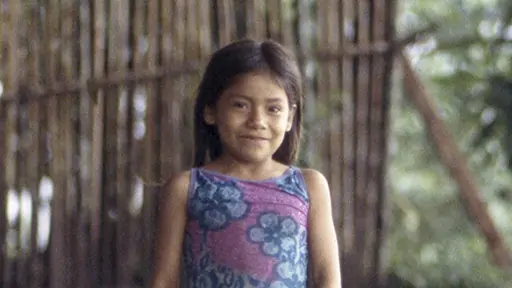Indigenous Calendar May, 2017: Contacting Corruption

Pedro Pablo Kuczynski became the President of Peru following a runoff election a year ago. He had lost the earlier election to candidate Keiko Fujimori by 21% to 40%. Fujimori may have lost — at least in part — because of the legacy of her father, former President Alberto Fujimori, who is currently serving a 25-year prison sentence for human rights violations, embezzlement and bribery. Or, she may have lost because she campaigned on a ticket of fighting crime and corruption in a country where the majority of the electorate believe no president would ever make good on such a campaign promise.
Ironically, a few days ago the Peruvian Council of Ministers passed a bill to stamp out corruption and allow Alberto Fujimori to leave prison. Prime Minister Fernando Zavala said: "Corruption is present at all government levels..."
One part of Peru where that is true is in the southeastern Madre de Dios region, which has been an epicenter of crime and corruption for many years. Just about every crime imaginable (including "legal" ones) takes place there and news reporting them can be found on any given day. One such news story, concerning illegal logging, was reported last month by the Associated Press. It revealed that Kuczynski took steps to allow continued illegal logging shortly after taking office.
The young girl in this month's photo is not from Peru's Madre de Dios region, but from far away in northeastern Peru. Nonetheless, she is from one of the country's indigenous groups who once had little contact with our world — the Cocama people.
Despite the recent bill, we should not expect crimes against its indigenous people to end any time soon. That is one reason why many of the lesser-contacted indigenous people from Madre de Dios will continue to seek more-lasting contact with our world. They have been seeking that contact for many years now. The best-known, recent case is that of the Mashco-Piro people, who were involved in an altercation as recently as last November.
Many groups like the Mashco-Piro are now crossing the border into Brazil. (Of course, to them, there is no such border.) When we look at the present state of Brazil, though, we might wonder why! Corruption is so prevalent in Brazil that it led to President Dilma Rousseff's impeachment last year — her crime being to do things jeitinho brasileiro, the Brazilian way.
Nobody knows the exact number of the lesser-contacted indigenous people from Madre de Dios. But we do know that from Panama to Patagonia, crime and corruption await those who integrate into mainstream society. After only two generations of mass contact the Cocama are already becoming linguistically and culturally assimilated into crime-ridden Peru. Kuczynski received his education at Princeton and Oxford. As these indigenous people seek to escape Peruvian crime and have more contact, they will be assimilated like the Cocama have been. First they will learn Portuguese. Only then can they learn jeitinho brasileiro. We can only hope that the next stage in their education will not be lessons in corruption.
Read more about the Cocama People.
If you enjoyed reading this article, please consider supporting independent, advertising-free journalism by buying us a coffee to help us cover the cost of hosting our web site. Please click on the link or scan the QR code. Thanks!


